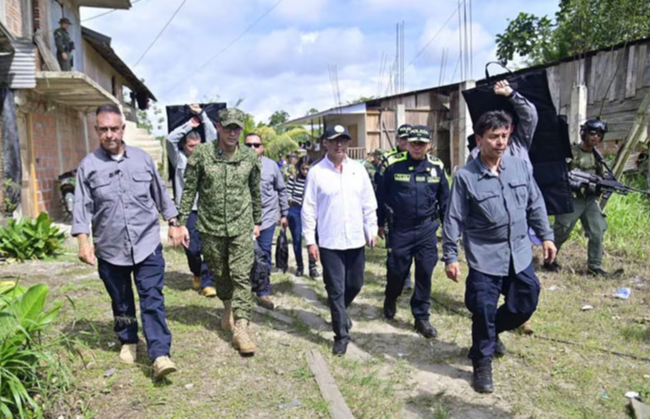
By María Josefina Arce
The Caribbean Region of Colombia has high rates of poverty, inequality, informal work and illiteracy. Official data reveal that six of the 10 poorest departments of the South American country are located in this area.
In a report at the end of last year, the National Administrative Department of Statistics stated that La Guajira and Sucre, two of the seven departments that make up the Caribbean region, occupy the second and third place in the list of poorest territories at the national level.
According to the state entity, more than 60% of the population of La Guajira and Sucre live below the poverty line.
And the Colombian president, Gustavo Petro, traveled to this area in the last few days with his cabinet. Reaching historically forgotten populations is a commitment of the current government.
During his visit, more than 4 thousand hectares of land were delivered to peasant families, an old debt of the State.
In this way, the Colombian president complies with one of the most important points of the historic 2016 Peace Agreement in Havana between the government of then President Juan Manuel Santos and the former guerrilla Revolutionary Armed Forces of Colombia-People's Army (Fuerzas Armadas Revolucionarias de Colombia-Ejército del Pueblo).
Point one establishes comprehensive land reform, vital in a country considered the most unequal in Latin America in land tenure and distribution.
In Colombia, one percent of the largest farms own 81% of the land, while one million peasant households occupy minimal land, according to research.
During his tour, Petro affirmed that if those who own thousands of hectares of land in the Colombian Caribbean sell it to the government and the government gives it to the peasantry, there will be peace for generations.
The authorities also delivered infrastructure works, agricultural machinery and credits to promote the sustainable development of these areas, which is part of the comprehensive agrarian reform.
Petro is fulfilling his commitment to advance towards social justice and a future of reconciliation. He has taken concrete steps to put an end to an old injustice and to make a correct distribution of land for the benefit of peasants and indigenous people, historically marginalized.

